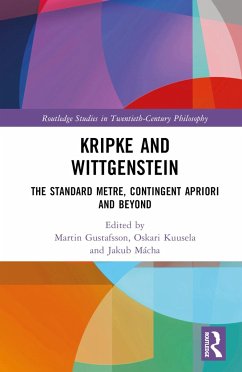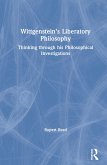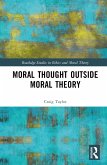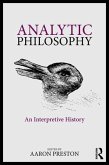This volume draws connections between Wittgenstein's philosophy and the work of Saul Kripke, especially his Naming and Necessity.
Saul Kripke is regarded as one of the foremost representatives of contemporary analytic philosophy. His most important contributions include the strict distinction between metaphysical and epistemological questions, the introduction of the notions of contingent a priori truth and necessary a posteriori truth, and original accounts of names, descriptions, identity, necessity, and realism. The chapters in this book elucidate the relevant connections between Kripke's work and Wittgenstein, specifically concerning the standard meter, contingent apriori, and rule-following. The contributions shed light on how Kripke's philosophical outlook was influenced by Wittgenstein, and how mainstream analytic philosophy and Wittgensteinian philosophy can fruitfully engage with one another.
Engaging Kripke with Wittgenstein will be of interest to philosophers working on Wittgenstein, Kripke, and the history of analytic philosophy.
Saul Kripke is regarded as one of the foremost representatives of contemporary analytic philosophy. His most important contributions include the strict distinction between metaphysical and epistemological questions, the introduction of the notions of contingent a priori truth and necessary a posteriori truth, and original accounts of names, descriptions, identity, necessity, and realism. The chapters in this book elucidate the relevant connections between Kripke's work and Wittgenstein, specifically concerning the standard meter, contingent apriori, and rule-following. The contributions shed light on how Kripke's philosophical outlook was influenced by Wittgenstein, and how mainstream analytic philosophy and Wittgensteinian philosophy can fruitfully engage with one another.
Engaging Kripke with Wittgenstein will be of interest to philosophers working on Wittgenstein, Kripke, and the history of analytic philosophy.
"At important points in his work, Kripke was in dialogue with the thought of Wittgenstein. The editors have assembled an impressive team of international Wittgenstein scholars with a deep knowledge of the analytic tradition to expand and explore this dialogue, re-examining the relationship between the work of two philosophers, providing fresh insights, and revealing tensions between Kripke's interpretation of Wittgenstein on rule-following and his own views about meaning. The focus is on names, modality, and the meter-rod, but the issues raised touch on some of the deepest questions in the philosophy of language: the connection between meaning and practice, the nature of the a priori, transcendental realism versus transcendental idealism, and the aims and methods of philosophy. This volume must be a starting point for all future discussions of these issues."
Marie McGinn, University of York, UK
"Wittgenstein and Kripke are in certain important respects very similar and in others very different philosophers. This inspired volume explores these comparisons along multiple interesting dimensions."
Paul Boghossian, New York University, USA
"This volume re-shapes the conversation regarding the intricated connections between Wittgenstein's and Kripke's work. It is, without a doubt, a must-have for any scholar working in either the Analytical tradition or Wittgensteinian philosophy."
Juan J. Colomina-Almiñana, Louisiana State University, USA
Marie McGinn, University of York, UK
"Wittgenstein and Kripke are in certain important respects very similar and in others very different philosophers. This inspired volume explores these comparisons along multiple interesting dimensions."
Paul Boghossian, New York University, USA
"This volume re-shapes the conversation regarding the intricated connections between Wittgenstein's and Kripke's work. It is, without a doubt, a must-have for any scholar working in either the Analytical tradition or Wittgensteinian philosophy."
Juan J. Colomina-Almiñana, Louisiana State University, USA








